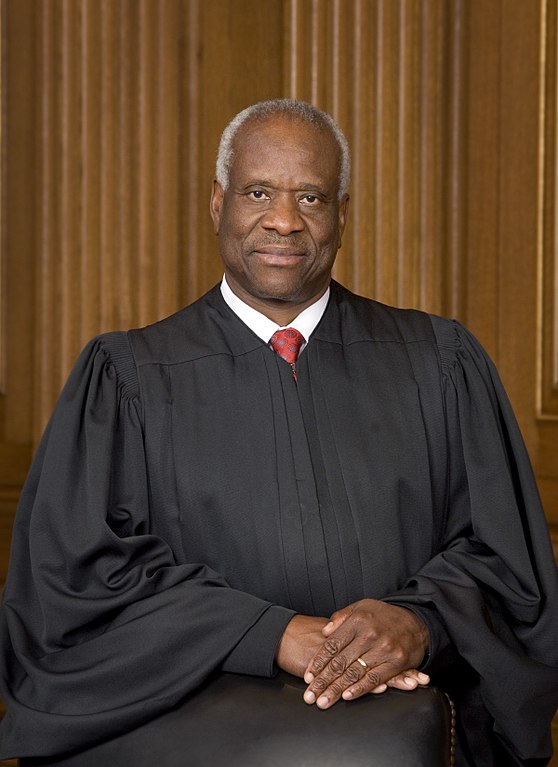I recently saw a video from Fr. Mike Schmitz about if I am a “good person,” with the thumbnail “what’s the deal with Catholic guilt?” Fr. Mike always does a good job with his videos, and as usual delivers a compelling presentation of the sensible, middle-of-the-road Catholicism that Ascension Presents tends to preach.
However, it did get me thinking about Catholic guilt. Because, no dig on Fr. Mike Schmitz, the sensible Catholicism he represents often isn’t sensitive to some of it’s own pitfalls.
“Catholic guilt” means many things, most of which are not worth our concern. But there’s one particular meaning that I think Catholics are slow to explore: the ways our faith even rightly understood contributes to negative emotion in a unique way. To look at how this can be the case, we’ll have to distinguish the various meanings of “Catholic guilt,” pick out the relevant one, and explore how it is latent in Catholic practice or teaching.
First, let’s distinguish some of the different senses of Catholic guilt. The mainstream definition, if you were to search “Catholic guilt” on Google, is the persistent guilt lapsed Catholics feel that they wish they could get rid of. It’s the dominant internet usage of the term, driven by think-pieces in secular publications about how the irreligious, anti-Catholic author still feels guilty whenever he or she commits objectively grave sins, even though he or she doesn’t think (or want to think) they’re sins anymore (because, obviously, nothing is a sin).
Fr. Mike Schmitz, in his video, distinguishes between “true guilt” and “false guilt,” i.e. when you should feel guilty vs. when you shouldn’t, but do anyway. The mainstream sense of Catholic guilt appears to be true guilt; it’s people feeling guilty for things they should feel guilty for, but just don’t want to feel guilty for. At most this sense tells us how Catholic upbringings stay inside you long after you try to reject them; which may be interesting for later definitions, but I don’t find super compelling.
Second, there is the closely-related sense of guilt good Catholics feel for things the culture says are not sins, but in fact are. For example, the reality of sincere-but-struggling Catholics feeling guilty for contraception or for porn usage. The wider culture judges these things to be harmless, and so anyone who is uncomfortable with them must be operating from a misplaced sense of moral duty, or their internalized “Catholic guilt.” Whereas the first sense has individuals feeling guilty when they interiorly think they shouldn’t, the second sense has individuals feeling guilty when others think they shouldn’t. The person actually feeling guilty might very well think they should feel guilty (and in fact, they should to a degree). This sense looks at Catholics from the outside and judges them as ridden with guilt, simply because they have moral standards the outside observer disagrees with. It is just an exercise in contempt for Catholicism, and is least interesting of all.
Third, there is the religious manipulation technique prevalent in various Catholic cultures. Though perhaps unfairly singled out within Catholicism, at least within Catholicism you’ll find plenty of parents, priests, and lovers who will foster and leverage feelings of shame/guilt to achieve their desired outcomes. Think of the passive aggressive mother wailing about how her children are ungrateful for all the good she’s done for them, except applied specifically to Jesus or other religious topics. “Ok, Jesus died on the Cross for you, but if you won’t even do this simple thing for him in return, that’s your right I guess,” or “If you don’t do this, or don’t do this good enough, or don’t do this more, I fear you’ll go to hell.” The “simple thing” you should do for Jesus is often a complicated thing done for the mother. Or the thing against which hell is threatened is typically a practice or request that ought to be left up to the freedom of choice of the individual. This isn’t true for all Catholic cultures; but it’s a stereotypical Irish Catholic trope for a reason. This sense of Catholic guilt is obviously an abuse of Catholic moral standards; but it’s alarming to see within many actual, lived out Catholicisms. And it brings us to our last sense, and the main target of my thoughts.
Fourth, there is the false, harmful guilt that is reinforced by the teachings of Catholicism. The third sense was Catholic teachings abused to produce harmful guilt; this sense is Catholic teaching unabused, and still producing harmful guilt. As an episode of 30 Rock quipped, “there is a crushing guilt that comes with being a Catholic. Whether things are good or bad or you’re simply… eating tacos in the park, there is always the crushing guilt.” It’s pervasive guilt, either untied to any particular action or felt about an objectively not-wrong action, that is also separate from any obvious individual abuse.
Now, for sure this fourth sense of Catholic guilt is closely related to the third; and I suspect that it is only possible in a mental environment that is already sensitive to guilt and duty, being closely related to scrupulosity. But the point is that many people are like this, and Catholicism in itself can contribute to such a negative emotional place.
Fr. Mike Schmitz’s video is a good test case. The good priest is very clear of two things, both of which are “good” Catholicism: 1) you are not good enough for God/heaven, and 2) God loves you and accepts you anyway. We can see right away that it’s possible (and the intention is) for the listener to walk away with the opposite of third-or-fourth-sense Catholic guilt. The conclusion is that you are loved and accepted; you are good in the eyes of God. Consequently, you shouldn’t feel guilty or ashamed or that you need to earn God’s love, or that he merely tolerates you.
That is a possible conclusion, but not the only one.
Because Catholicism on these matters gives with one hand, while takes away with the other. Someone plagued by feelings of unworthiness isn’t helped by being told they really are unworthy, even if that’s followed up with “but you also are worthy because God made it so.” The second part doesn’t land. Or, a Catholic may feel guilty for not doing more prayers or penances. They are told they should do these things to the level of their vocation that God has called them; but then they are given Saints to imitate, 99.9% of which lived the prayer and penitential habits only available to the clerical/religious state. Someone else feels they must work hard to earn God’s love. They are told that God is good and merciful, and should be approached in trust and peace; but they are also threatened with hell if they make the wrong step.
A religion that tells you you are sinful trash. A faith that aspires to Saints whose example is unattainable for most of the faithful. A teaching that God might burn your soul if you make a mistake. And a preaching that, by the way, you should feel guilty about feeling guilty.
Obviously, these are incomplete truths. On the whole, Catholicism isn’t supposed to procure such feelings or negativity. And, many or even most Catholics find the opposite in their lived faith, instead feeling the freedom and peace they should feel.
But, they are truths nonetheless. And they seem to be harmful truths, unless seriously balanced by the correspondingly-opposite truths Catholicism also teaches. But, Catholicism is a big and complicated faith–there’s a vast network of teachings, practices, spiritualities, Saints, clerics, etc. that even the most intelligent and educated get tangled in at times. The ordinary Catholic can’t even get all of it into their head, let alone order it and make sense of it with 100% accuracy. Especially if plagued by a particular temperament, or coming from a third-sense Catholic guilt culture, it is easy to imbibe only (or just more) the harmful truths without their balancing counter-truths.
Is it any wonder then, that many sincere Catholics feel guilty for eating tacos in the park?
The point of this isn’t just to complain about my particular grievances (though that’s always fun). It’s to point out that there’s an insufficient awareness on the part of Catholics of the spiritual and mental health pitfalls within their own religion. Pastors and parents, in particular, need to be sensitive to these things. Otherwise, they may engender them within their proteges accidentally.
The “competing” truths of our faith exist for the competing backgrounds and souls that exist within it. Is someone haughty, boorish, unapologetic, and brash with those around him? They probably need to be put in their place–meaning told that they are undeserving of God and heaven. Is someone shy, timid, and conscientious? Then they probably already are aware of how they are unworthy–and need to be told that in the eyes of God, they are unimaginably good, worthy, and beautiful.
And here’s the ultimate point. A good pastor will know the needs of the individual, and respond accordingly. But no pastor is so perfect as to be accurate all the time; and all will be in situations where they cannot know this, as in preaching to a crowd or an online article (or blog post). So all will err; but it is better to err on the side of grace and mercy.
You do greater harm to tell the people who need to hear they are loved that they are unworthy, than you do in telling the people who need a smack-down that they are loved.
In various cultures and time periods in the Church, the emphasis has been on our neediness before God. Our dirt. Our fallenness.
But these truths are apparent to anyone who cares to listen. And, for those who won’t listen, they will eventually be shouted such by the various people a brash, cocky Christian will inevitably slight.
Meanwhile, very little in our fallen world reinforces that we are loved, worthy, and cherished. So those who need to hear this need to hear it again and again. And, if they don’t hear it from the Church, no one in the world will step in.
Fr. Mike Schmitz on the whole seems balance these things very well, and most always shows himself sensitive to the pitfalls of incomplete Catholic truths.
But in general: be aware (and be wary) of Catholic guilt–both in yourself, and how you may be spawning it in others.
And eat tacos in the park in peace.
*Funny note: the tag for the free-use image on this post, on the website I pulled it from, was “Upset little ethic boy looking at faceless father during argument.” Both comically specific, and in some ways appropriate for this topic.



